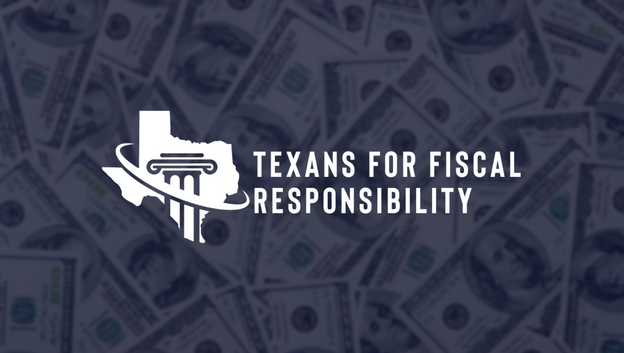
The 88th Legislative Session is now halfway complete, and legislation seeking to provide property tax relief is starting to move through the legislative process. Both chambers have provided some compression of school district maintenance and operations (M&O) property taxes, which is the best form of relief for everyone. But leadership in the Texas House of Representatives put the rest of the emphasis on appraisal reform, while leadership in the Texas Senate has prioritized increasing the homestead exemption.
Despite having legislation filed to do so, neither legislative chamber seems to have an appetite to take advantage of the historic opportunity to maximize tax relief for Texas taxpayers and put the state on a path to eliminate property taxes altogether, giving taxpayers their right to own property instead of renting from the government.
So, how do the leading proposals stack up?
Texas Senate
In the Texas Senate, Lieutenant Governor Dan Patrick specified that three of his legislative priorities would be focused on property tax relief. The “legislative package” includes increasing the homestead exemption for school district M&O property taxes, adding compression of school district M&O property taxes, and increasing the business personal property tax credits and exemptions. In total, the Texas Senate has proposed tax relief measures of $16.5 billion. It is important to note that $5.3 billion of that total is to maintain old property tax relief efforts, thereby leaving only $11.2 billion in new tax relief.
Senate Bill 3 – Homestead Exemption Increase
Current law sets the homestead exemption threshold for the appraised value of a home from paying school district M&O property taxes at $40,000. Senate Bill 3 would increase that threshold to $70,000, which purportedly will save taxpayers who qualify for the exemption about $340 per year at rates adopted in 2022. The legislation also allows seniors to deduct an additional $30,000 to $100,000. The author of the bill, Republican State Sen. Paul Bettencourt (Houston), claims that taxpayers would save between $800 and $1,000 over the next two years. These measures are reported to be about $3.9 billion.
What’s the problem? This approach only provides tax relief to those who qualify for the homestead exemption and shifts the burden of paying to other taxpayers. Moreover, inflation can continue to lead to appraisal creep that will eat away at any would-be savings for Texas taxpayers, as the exemption is a fixed amount. This would also disincentivize Texans to move into higher-valued homes when their needs change, as they would not have as much of their tax liability for that home exempted. Texans for Fiscal Responsibility (TFR) recently testified in front of the Senate Finance Committee to this fact.
Senate Bill 4 – Additional Property Tax Relief via Compression
Currently, the average school district M&O property tax rate is about 91 cents for every $100 in value. If left alone, the average rate would be driven down to about 81 cents per $100 in value by the year 2025 (rates are set at the local level) based on previous efforts by the state Legislature. Senate Bill 4, also authored by Sen. Bettencourt, would use $5.4 billion to provide for an additional 7 cents worth of rate compression (about 74 cents per $100 in value by 2025). And there is compression of the maximum compressed rate (MCR) for an amount of $0.4 billion, which could help reduce the Robin Hood effect of redistributing funds from higher-valued districts to lower-valued districts. In total, SB 4 would use $5.9 billion for these measures.
What’s the problem? Though TFR believes compression is the superior form of property tax relief, the legislation does not maximize the relief it could provide Texas taxpayers by using more of the $32.7 billion budget surplus or by cutting existing state spending, freeing up additional money to use for such efforts. Without returning more of the excessively collected taxpayer dollars, Texans are unlikely to see lower tax bills, nor will there be a path to eliminating these bad wealth taxes.
Senate Bill 5 – Increasing the Business Personal Property Tax Exemption
Senate Bill 5, authored by Republican State Sen. Tan Parker (Flower Mound), simultaneously works to exempt the first $25,000 of personal property claimed by a business from the property tax and provides a new franchise tax credit of up to 20% of the amount of property taxes paid on the inventory itself. Parker claims that his legislation would provide nearly $1.5 billion in tax relief to business owners.
What’s the problem? This reduces how much relief could be provided through rate compression so that employers, homeowners, and renters receive maximum relief. While SB 5 could provide some businesses with relief, not everyone will get the benefit if they don’t have business personal property taxes. Ultimately, the biggest bang for the buck in relief is through compression.
Texas House of Representatives
In the Texas House of Representatives, leadership has chosen to focus much of its efforts on other policy areas, with the lone exception being that of legislation seeking to lower the appraisal cap and provide school district M&O tax compression, as prioritized by House Speaker Dade Phelan. Similar to the Texas Senate, the Texas House has proposed tax relief measures totaling $17 billion, but $5.3 billion is to maintain old property tax relief efforts. This means that any new relief would be a total of $11.7 billion, or $0.5 billion more than the Texas Senate.
House Bill 2 – Lowering Appraisal Caps & Compression
Current law sets the appraisal cap, or the limit on the increase in taxable value of a homestead property, to 10%. House Bill 2, authored by Republican State Rep. Morgan Meyer (Dallas) would lower that cap to 5% and apply it to all property (residential, commercial, etc.). The legislation also seeks to use $11.7 billion for an additional 15 cents worth of compression of school district M&O property taxes, which is more than double what the Senate provides in SB 4. Combined, it is estimated that the owner of a $350,000 home in Texas would see a potential annual savings of about $1,300 over the course of the next two years.
What’s the problem? Though TFR believes compression is the superior form of property tax relief, the legislation does not maximize the relief it could provide Texas taxpayers by using more of the $32.7 billion budget surplus or by cutting existing state spending. TFR also counts itself among several organizations that have expressed concerns with reducing the appraisal cap approach due to potential inequities, as well as the potential for tax rates to be driven up by local governments to achieve the same amount or more revenue that they received in the previous tax year. In addition, the inequities in values can lead to what is known as a lock-in effect where homeowners choose not to move or risk paying higher taxes elsewhere if they do, as has been the case after Proposition 13 in California. TFR also recently testified in front of the House Ways & Means Committee to express similar sentiments.
Preferred Approaches
TFR has long believed that the most effective way to provide tangible property tax relief to taxpayers who are continuously suffering under ever-increasing tax burdens is that of compression or the buying down of the school district M&O (Maintenance & Operations) portion of the property tax, which is about 45% of all property taxes collected by local government in Texas. It is also the largest portion that funds independent school districts across the state, which are funded by school finance formulas set by the Texas Legislature.
This legislative session provides a historic opportunity for lawmakers to not only provide real property tax relief but also a path to the elimination of property taxes—which are highly burdensome, immoral, and costly to administer—using the existing budget surplus. Moreover, with some key policy changes, the path to elimination could be much shorter if lawmakers choose to get serious about their own spending habits and those of local governments. For a list of legislation that does all of the above, click here.
What Is Next?
Though the 88th Legislative Session is halfway complete, legislation is only just now starting to move through the legislative process, making this an apt time for taxpayers to make their voices heard.
Concerned taxpayers may contact their lawmakers here.
Texans for Fiscal Responsibility relies on the support of private donors across the Lone Star State in order to promote fiscal responsibility and pro-taxpayer government in Texas. Please consider supporting our efforts! Thank you!
Get The Fiscal Note, our free weekly roll-up on all the current events that could impact your wallet. Subscribe today!




